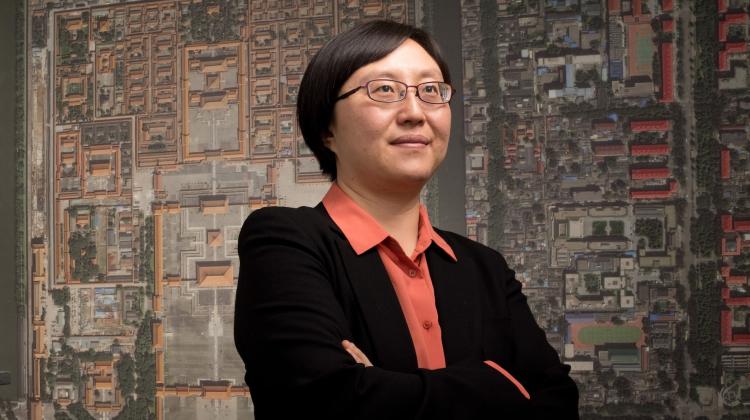Changing Real Estate’s Carbon Footprint with Data as a Guide

Credit: Bryce Vickmark
Real estate is a massive industry, with buildings generating an astonishing 39% of carbon emissions worldwide. Production of cement, concrete, and steel for construction contribute one third of those emissions, while operational carbon released during heating, cooling, and electricity accounts for the rest.
In many US cities, lawmakers have announced ambitious targets to achieve net zero (a balance between the greenhouse gas that’s produced and the amount that’s removed from the atmosphere) in the next few decades. This puts real estate leaders under pressure to help meet these targets while still making a profit. An abundance of technological innovations and incentive programs are available, but adoption by the real estate industry remains low due to barriers such as a lack of reliable information and confusion about upfront costs.
“My work focuses on how to accelerate the adoption of all the new decarbonization technologies and how to improve the resilience towards climate risks in the real estate industry, how to identify the barriers and create new policy or market mechanisms to speed up this sustainable transformation,” says Siqi Zheng, the STL Champion Professor of Urban and Real Estate Sustainability in the Department of Urban Studies and Planning and faculty director of the MIT Center for Real Estate and the MIT Sustainable Urbanization Lab.
Zheng’s work in this area with the Center for Real Estate is supported by an MIT Fast Forward Faculty grant created by the MIT Climate Nucleus to catalyze interdisciplinary teams of climate and sustainability leaders from across the Institute.
"The real estate industry is so huge and so traditional," says Zheng. "From development to asset management, and to investment, practitioners hadn’t really put the climate issue onto their ‘most important’ agenda. My work focuses on how to accelerate the adoption of all the new decarbonization technologies and how to improve the resilience towards climate risks in the real estate industry."
Faced with clear signs of climate change such as rising sea levels as well as the pressure of government initiatives, however, industry leaders are showing more enthusiasm for data-informed solutions to reduce their properties’ carbon footprints and increase their resilience in the face of both physical and transition climate risks.
Zheng’s projects under the Fast Forward Faculty Grant umbrella create pathways for institutional investors and pension fund managers to decarbonize the assets in their portfolios through investment matching and through physical upgrades in properties.
In one collaboration with Roberto Rigobon PhD ’97, the Society of Sloan Fellows Professor of Management and professor of applied economics at the MIT Sloan School of Management, Zheng and her team use an iPad-based, algorithm-powered questionnaire to help real estate investors better understand their assets through the environmental, social, and governance (ESG) framework. “We’re trying to help them connect Wall Street with Main Street to maximize the social value of all their investments,” says Zheng. “That way they can effectively align their financial performance goal with environmental and social goals, instead of just randomly talking about ESG.”
Collaborating with Christopher P. Knittel, the George P. Shultz Professor of Energy Economics and professor of applied economics at MIT Sloan, Zheng’s team also studies how best to increase adoption of heat pumps, the most efficient building electrification technology. By reducing homes’ reliance on oil and gas for heating and cooling, high-efficiency electric heat pumps are another energy game changer, reducing homes’ reliance on oil and gas. But to meet many of the net-zero targets proposed across the United States and Europe, installation of these systems would need to triple, from the 180 million installed by 2020 to 600 million by 2030. “What’s the pathway?” asks Zheng. “The adoption is so low, even with all the subsidies from the Inflation Reduction Act. So we are doing research to identify the key barriers. Then we will talk to community-engagement programs and see how we can really work together to promote this.”
Zheng and her team hope to expand their efforts beyond the United States to work with fast-growing economies around the world. “Industry leaders need new knowledge, some science-based decision-making support,” says Zheng. “The timing is good for MIT’s Center for Real Estate to become the intellectual leader on this new ground.”


